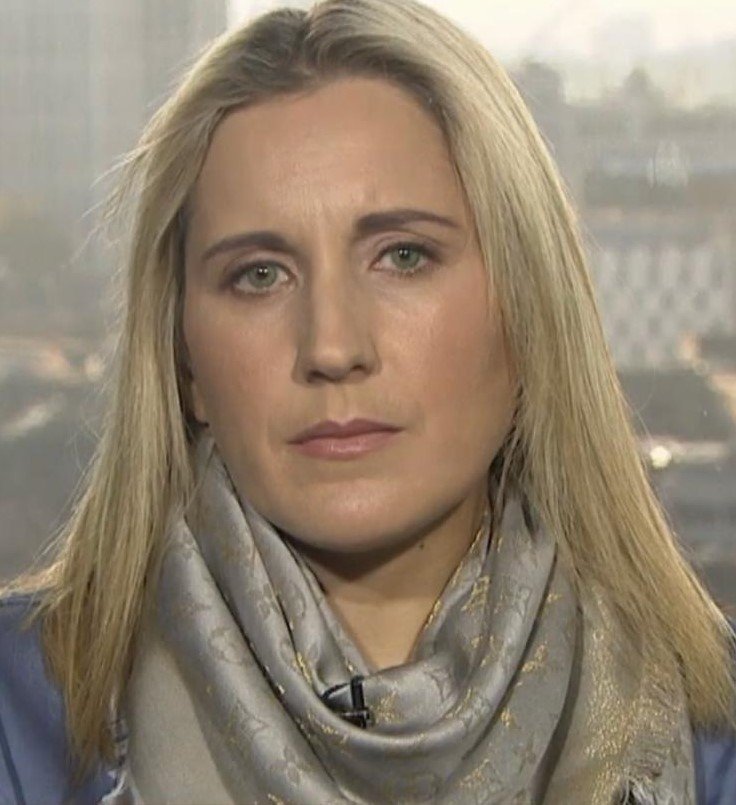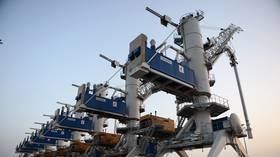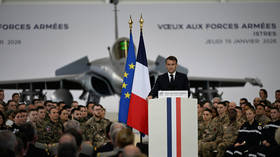Vying for control over water: Why ISIS' grand ambitions put everyone at risk
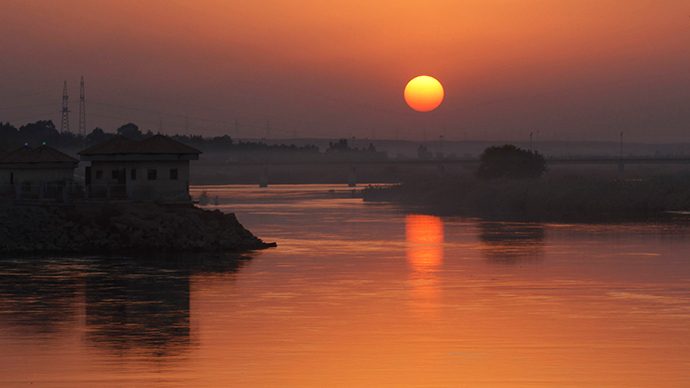
Beyond the clamor of war hides a more vicious and insidious conflict - ISIS is vying to control water. Away from the sensational headlines, the terror group is working to throw the global economy out of balance in a game of dominoes we all stand to lose.
Although ISIS' interest over both Syria and Iraq water resources is hardly breaking news, the infamous radical Wahhabist terror group's relentless military advances and the precisions of its men's strikes atkey infrastructure and certain geographic vantage points in the greater Levant region paint a picture which should have the world worried.
We live in an increasingly globalist world, where the fluttering of one butterfly's wing can indeed wreak havoc some several thousand miles away. And while many experts will continue to downplay ISIS' intrinsic threat by reducing its malignant effects to a twisted religious ideology coupled with end-world megalomaniac ambitions, constrained to the Middle East, ISIS' water war, or rather its natural resources war is not the figment of a chaos theorist's imagination - it is a reality we all, sooner, rather than later, need to wake up to.
READ MORE: Water wars: ISIS shuts down Iraqi dam, uses freshwater as weapon – reports
Beyond the simple corporate bottom line, ISIS, if allowed, could soon hold the world ransom over more than just fuel - food supplies, global economic stability and population migration, all stands in the balance. What are world powers doing? Not much given the speed with which this one terror army has been able to encroach itself further onto Iraqi and Syrian territories over the past few weeks. With half of Syria under the sway of terror militants, many military experts among who retired Brigadier General Abdullah Al Hakeem, have warned that Iraq is positioned to be the next shoe to drop. "With Syria weakened and its military thinned out in between various fronts: government opposition and terror militants, ISIS is likely to concentrate its forces against Iraq to consolidate its hold over key strategic areas," the general explained.
"ISIS is not looking to score more territory. It selected holding: water dams, oil wells and other vital infrastructure to suffocate not only Baghdad but the region. There is a domino effect we need to consider here when looking at this picture. ISIS is planning an empire, it is not your regular hit and run terror organization," Al Hakeem added.
Mohammed Abu Zaid, a security consultant with the Yemen Institute for Arab Affairs noted that in the light of the Middle East pre-existing water crisis, ISIS' play on the region's fresh-water resources represents a threat of biblical magnitude.
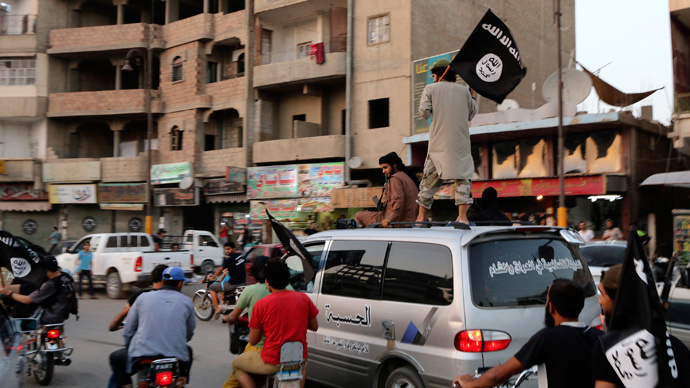
"Water resources are scarce in the region. Global warming, pollution and mismanagement have evidently exacerbated the problem and studies have shown that by 2025 famine would hit a drought-stricken Middle East unless global efforts are made."
And indeed, US water management expert Roger Patrick assessed in March, in a report for the Journal of the AWWA, that local water shortages are now having “more globalized impacts.” He drew a parallel in between “political instability in the Middle East and the potential for the same in other countries” and the “global interconnectedness” of water scarcity at local and regional levels.
These findings echo a 2012 US intelligence report on a classified National Intelligence Estimate on water security, commissioned by then-Secretary of State Hillary Clinton which concluded that by 2022, "droughts, floods and freshwater depletion," would likely lead terror organization to weaponize water - the new tool of terrorism.
Playing access to water will have far worse repercussions over the global economy than a play on oil and gas commodities ever could - water is after all the very source of life.
Looking at how ISIS militants attempted to "cleanse" entire communities in Iraq on the basis of their religious preferences, it is not too difficult to imagine how this one terror group could use thirst as a weapon of mass destruction.
But beyond the weaponization of natural resources lies another reality which we have too often dismissed when attempting to confront and defeat terror. Water scarcity is and has been a driving factor of sectarianism, a catalyst and a fuel for radical groups such as ISIS. Not convinced?
In 2011, before ISIS elected Syria as its regional springboard, the country suffered a devastating drought which forced over a million Sunni farmers to migrate to areas falling under the control of the Alawites. These new living arrangements led to aggravated sectarian tension, fanned by economic hardship and the disappearing of the middle class.
In June 2014, Eric Holthaus, a US meteorologist remarked in a report for the Slate that the cataclysmic rise of ISIS in Iraq, March-May 2014, overlapped a period of extreme heat and drought. He wrote, "This year’s major drought has coincided with the rise of ISIS, which has already used dams as a weapon of war, threatening downstream agriculture and electricity production during its march to gain control of vast swaths of territory in Syria and northern Iraq."
If we missed the writing on the wall then - what about now? Can we really afford to ignore what perils lie ahead just because politicians fail to link the dots?
Should terror militants be allowed to control the region's water resources: the Euphrates and the Tigris being the first two rivers on its list, oil prices and the illegal sale of barrels of petrol on the black market will be the least of our worries.
The long litany of illegal migrants coming from war-hit zones toward Europe should serve as a cautionary tale. Beyond the obvious human tragedy and legal repercussions such an exodus entails, lay the dangers linked to ethnic and sectarian tensions. How long before Europe and other world regions fall prey to the "Syrian syndrome"?
The statements, views and opinions expressed in this column are solely those of the author and do not necessarily represent those of RT.
The statements, views and opinions expressed in this column are solely those of the author and do not necessarily represent those of RT.
